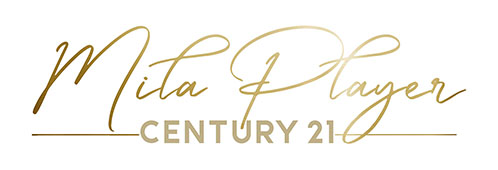Pre-Qualification
The most damaging down payment myth—since it stops the home-buying process before it can even start—is the belief that 20% is necessary.
There are so many programs these days that allow qualified buyers to purchase a home with a down payment as low as 3.5%.
There are even options like VA loans and USDA loans with no down payment requirements for qualified applicants.
Gifts
Down payment gifts can make it much easier to purchase a home, and mortgage lenders are generally happy to accept them. Lenders allow cash gifts for down payments on a huge array of loan programs including FHA loans, VA loans, USDA loans, conventional loans, and even jumbo loans.
However, lenders most likely won't allow you to use a cash gift from just anyone to buy a home.
THINGS TO KNOW WHEN USING A GIFT TO PURCHASE A HOME:
- If you are buying a primary or second home, most loan types will allow you to use funds that have been gifted to you.
- Gift funds are not allowed on an investment purchase.
- In a primary purchase, gift funds can fund all or part of the down payment, closing cost or financial reserves.
- if you are buying a second home, you may be required to bring some money of your own to contribute towards the purchase.
- The down payment you make on your home impacts what kind of mortgage you qualify for, how much money a lender will give you, and the loan's terms and conditions.
- But the size of your down payment also impacts your lifestyle and long-term financial planning goals, as it determines your monthly mortgage payments and how much money you'll have for other expenses.
- If you've only ever rented, keep in mind that your monthly expenses as an owner include more than just the mortgage; there are also property taxes, maintenance, insurance, and potential repairs.
- A larger down payment will give you a lower loan-to-value ratio, or LTV. This key measure makes you less risky to lenders, may qualify you for lower interest rates, and may help you avoid fees, such as private mortgage insurance.
- A larger down payment may make you more competitive as a buyer because you'll be seen as more reliable, less prone to haggling, or needing to ask for sellers to pay closing costs.
As a general guideline, many prospective homeowners can afford to mortgage a property that costs between 2 and 2.5 times their gross income. For example, if you earn $100,000 per year, you can afford a house between $200,000 and $250,000.
making a larger down payment can be a smart strategy to lower both the monthly cost of carrying the home, as well as the overall cost of interest paid over the lifetime of the loan. This also means that you will have a larger amount of home equity in your house to draw on if you need to access it through a home equity loan or HELOC. This can be helpful if you need to remodel or just need the cash for a large expense or emergency.
In addition to the lower financial costs of owning your home, a larger down payment can also qualify you for a lower interest rate on your mortgage.
Important: While there are benefits to a larger down payment, one must balance the pros and the cons. With a larger amount down, that money is no longer available to make other purchases or investments, so there is an opportunity cost. That money will also be tied up in your home, making it less liquid than cash.
In fact, homebuyers who financed their home put down an average of 12% of the purchase price, according to NAR’s 2021 Home Buyers and Sellers Generational Trends Report.
- Fannie Mae and Freddie Mac Programs (3% Down) Conventional Loan
Freddie Mac’s Home Possible Advantage mortgage also offers a 97% LTV ratio for borrowers but requires a minimum credit score of 660 to qualify. The program will even consider some borrowers with no credit score by building a non-traditional credit report—as long as those borrowers meet certain debt-to-income and loan-to-value ratio guidelines in addition to other requirements - Individual Lender Programs (1% to 3% Down) Conventional Loan.
If you need a loan with a low down payment requirement, ask lenders about their offerings to help you narrow down your choices. - Jumbo Loans (10% to 20% Down)Conventional Loan Jumbo loans are the most common type of non-conforming conventional loan available to homebuyers. Lenders have varying qualifying guidelines for jumbo loans, which exceed an area’s conforming loan limit set by the federal government.
Because jumbo borrowers present more risk for a lender, expect to put 10% to 20% of the purchase price down. - FHA loans (3.5% down) Government-Insured Loan
You can put as little as 3.5% down on FHA loans if you have a minimum credit score of 580. FHA-approved lenders also will consider borrowers with non-traditional credit histories as long as you’ve had on-time rent payments in the past 12 months, no more than one 30-day late payment to other creditors. Keep in mind the property you’re buying must comply with the property standards set by the U.S. Department of Housing and Urban Development for single-family and condo homes and be within FHA loan limits. - VA loans (0% down) Government-Insured Loan
U.S. military service personnel, veterans, and their families can qualify for zero-down loans backed by the U.S. Department of Veteran Affairs. Other benefits include a cap on closing costs (which may be paid by the seller), no broker fees, and no MIP. - USDA loans (0% down) Government-Insured Loan
There’s no shortcut to saving for a down payment: It takes time, discipline, and effort. But the result—purchasing a home of your own—can be rewarding, both financially and personally.
If you have questions about financing to purchase a home, I have several great Mortgage Lenders I can pair you up with!
